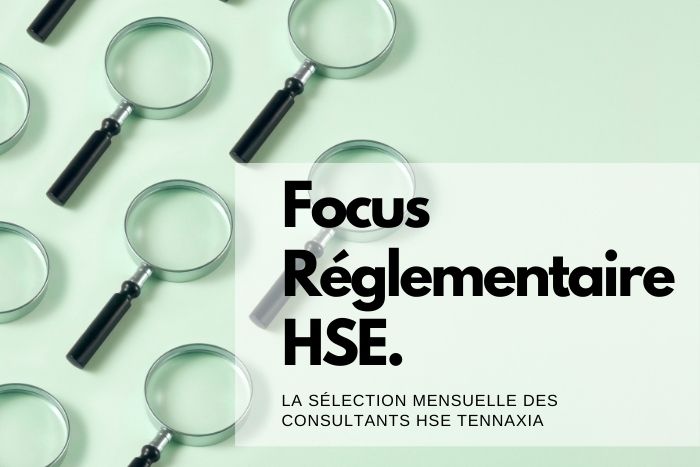The list below is an extract from the French and European Official Gazettes concerning the environment, energy and occupational health and safety for July and August 2024.

ENVIRONMENT
Extending the scope of the IED Directive and tightening environmental and health protection rules
Directive 2010/75/EU of the European Parliament and of the Council of November 24, 2010 on industrial emissions and emissions from livestock farming (IED) AMENDED BY Directive (EU) 2024/1785 of the European Parliament and of the Council of April 24, 2024 [OJEU of July 15, 2024].
As a reminder, the Industrial Emissions Directive (IED) aims to prevent and reduce pollution from industrial activities.
The directive of April 24, 2024 amends the IED directive by extending its scope to new activities and more intensive livestock farming, reinforcing existing requirements and imposing new ones.
Two areas have been newly introduced as fundamental obligations for operators:
- The use and, wherever possible, the production of renewable energy is promoted;
- Material resources, energy and water are used efficiently, in particular through reuse.
Modifications to drought-period restrictions on water abstraction and consumption by Installations Classées pour la Protection de l'Environnement (ICPE) (facilities classified for environmental protection)
Arrêté du 30 juin 2023 relatif aux mesures de restriction, en période de sécheresse, portant sur le prélèvement d'eau et la consommation d'eau des installations classées pour la protection de l'environnement MODIFIE PAR l'arrêté du 3 juillet 2024 [JORF du 6 juillet 2024] (French only)
As a reminder, ICPEs subject to authorization or registration that withdraw more than 10,000m3 of water per year must, during periods of drought and depending on the severity levels triggered locally, implement actions to reduce water withdrawal.
Firstly, the Order of July 3, 2024 introduces new definitions (mine drainage, rainwater) and clarifies certain existing definitions (water withdrawal, recycled treated wastewater, perishable raw materials, etc.).
Secondly, the text clarifies the calculation of the reference volume to which the reductions apply. The new definition is as follows: this is the average daily water withdrawal. It corresponds, for each withdrawal environment, in normal periods of activity and excluding drought periods, to the maximum between the average daily volumes withdrawn calculated over the previous calendar year and the average daily volumes withdrawn calculated over the corresponding calendar quarter of the previous year (a flat-rate value of 5% is deducted from this reference volume, corresponding to uses necessary for plant safety and environmental protection. The deduction of a higher volume, duly justified, may be made by the operator). Dewatering volumes may be deducted from the reference volume.
When reinforced alert or crisis severity levels are in force, the information requested must now be transmitted via the GIDAF electronic tool (and no longer via the simplified procedures site).
The application note for this decree has also been amended to take account of questions and comments from stakeholders.
Changes to procedures for the cessation of activity of ICPEs subject to authorization, registration and declaration
Code de l'environnement Articles R. 512-1 to R. 512-45: Installations soumises à Autorisation,
Code de l'environnement Articles R. 512-46-1 to R. 512-46-30: Installations subject to Registration,
Code de l'environnement Articles R. 512-47 to R. 512-66-3: Installations subject to declaration
AMENDED BY Decree no. 2024-742 of July 6, 2024, containing various provisions to implement the Green Industry and Environmental Simplification Act [JORF of July 7, 2024].
As a reminder, Law no. 2023-973 of October 23, 2023 on green industry introduced a number of provisions aimed at speeding up and simplifying administrative procedures applicable to companies in the environmental field.
Decree no. 2024-742 of July 6, 2024 clarifies the application of this law to the cessation of ICPE activities. It covers the following points in particular:
- The rehabilitation brief and its diagnosis of the soil study;
- Content of the management plan ;
- Certification of suitability of rehabilitation measures ;
- Memorandum of rehabilitation and completion of cessation of activity.
Details on the removal of financial guarantees for ICPE sites subject to authorization and registration
Decree no. 2024-742 of July 6, 2024 containing various provisions to implement the Green Industry and Environmental Simplification Act (articles 64 and 66) [JORF of July 7, 2024].
As a reminder, the "Green Industry" law abolished the requirement for financial guarantees for facilities subject to authorization (except Seveso high threshold) and registration listed by decree.
This decree therefore specifies the procedures for managing financial guarantees currently in place, which, having been legally withdrawn, are no longer owed by operators. As a result :
- The provisions of the prefectoral decrees which prescribed the constitution of financial guarantees prior to October 25, 2023 are repealed;
- Where financial guarantees have been set up in the form of surety deeds (written commitment from a credit institution, insurer, autonomous guarantor, etc.), those in force will lapse;
- Where financial guarantees have been deposited with the Caisse des dépôts et consignations, the corresponding sums are released by the Caisse at the request of the operator.
Operators requesting to benefit from these provisions must provide proof that the safety operations have been carried out.
Water reuse in the food industry
Arrêté du 8 juillet 2024 relatif aux eaux réutilisées en vue de la préparation, de la transformation et de la conservation dans les entreprises du secteur alimentaire de toutes denrées et marchandises destinées à l'alimentation humaine [JORF of July 9, 2024] [Decree of July 8, 2024 on water reused for the preparation, processing and conservation of all foodstuffs and goods intended for human consumption in food-sector companies
As a reminder, the French Public Health Code provides for the possibility of reusing certain types of water in food businesses, notably for the preparation, processing and preservation of all foodstuffs and goods intended for human consumption, including the cleaning of premises, installations and equipment.
This text defines the authorized uses of recycled water from raw materials, recycled process water and recycled treated wastewater.
Use of water unfit for human consumption for domestic purposes
Code de la santé publique Articles R. 1322-87 à R. 1322-113 : Utilisation d'eaux impropres à la consommation humaine pour des usages domestiques CREE PAR le décret n° 2024-796 du 12 juillet 2024 relatif à des utilisations d'eaux impropres à la consommation humaine [JORF du 13 juillet 2024].
As a reminder, the French Public Health Code stipulates that water unsuitable for human consumption may be used for certain purposes (domestic or in food businesses) when the quality of this water has no influence on the health of the user or on the wholesomeness of the final foodstuff.
This new section of the Public Health Code establishes a framework for the use of water unfit for human consumption for domestic purposes. In particular, it defines the domestic uses for which water unsuitable for human consumption may be used, the waters (or mixtures) that may be used, and the technical and health requirements that must be met for the use of such water.
A decree dated July 12, 2024 sets out the sanitary conditions for the use of this water.

SAFETY
Prevention of electrical risks associated with non-electrical work carried out in the vicinity of overhead or underground live electrical structures or installations.
Arrêté du 5 juillet 2024 relatif à la prévention du risque électrique lié aux travaux d'ordre non électrique réalisés dans l'environnement d'ouvrages ou installations électriques sous tension aériens et souterrains [JORF of July 7, 2024] [French Official Gazette of July 7, 2024
Pursuant to the provisions of the French Labor Code relating to non-electrical work carried out in the vicinity of overhead or underground electrical structures or installations, this order sets out :
- The list of information and details of the location of electrical structures or installations provided to the employer carrying out the work by the operator of the electrical structure or the site manager of the installation;
- General safety distances applicable to work carried out in the vicinity of live bare overhead lines, as well as the methods for assessing these distances and the safety requirements to be implemented by the employer when carrying out this type of work;
- Cautionary approach zone for work on insulated pipelines ;
- Specific safety distances applicable to certain types of work, as well as the methods for assessing these distances and the safety requirements to be implemented by the employer when carrying out these types of work;
- Work requiring specific authorization or training.
Designation of reference standards for electrical risk prevention
Order of July 5, 2024 on standards defining recommended procedures for carrying out operations on electrical installations or in their vicinity or for carrying out non-electrical operations in the environment of overhead and underground live electrical installations and structures - Prevention of electrical risk [JORF of July 7, 2024].
This decree designates the reference standards for electrical risk prevention. The standards concerned are :
- NF C 18-510 : January 2012,
- NF C 18-510 /A1,
- NF C 18-550 August 2015.
Training for health professionals and additional approval for prevention and occupational health services responsible for enhanced individual monitoring of workers exposed to ionizing radiation
Order of August 6, 2024 concerning the training of occupational physicians and other occupational health professionals providing enhanced individual monitoring of a worker exposed to ionizing radiation and the conditions for issuing additional approval for occupational health services [JORF of August 14, 2024].
This decree defines the specific training courses to be taken by health professionals, as well as the additional accreditation procedures for occupational health and prevention services (SPST) in order to ensure reinforced individual monitoring of workers exposed to ionizing radiation. These obligations also apply to occupational health services in agriculture.
As a reminder, the obligation for healthcare professionals to undergo specific training was previously limited to personnel working in basic nuclear installations. This obligation has now been extended to all activities.


.svg)



